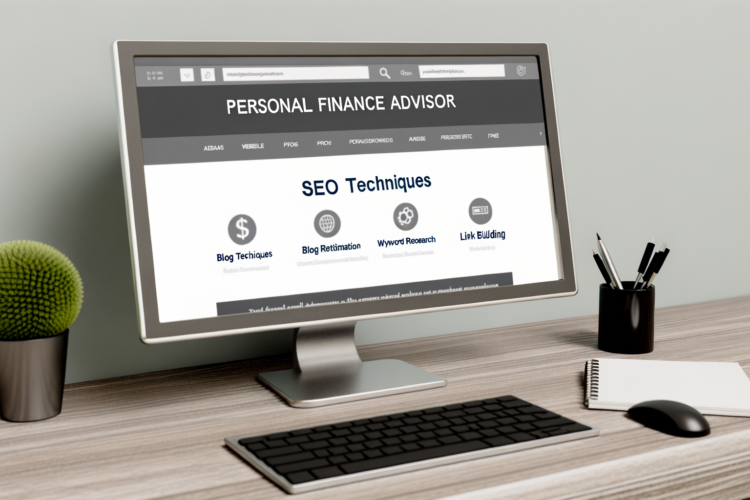
To utilize SEO effectively for a personal development coach’s site, you should focus on creating high-quality, relevant content that resonates with your target audience, optimizing your website’s structure and user experience, building high-quality backlinks, and ensuring your site’s technical SEO is up to scratch. This involves keyword research to understand what potential clients are searching for, producing content that addresses these queries, and making sure your site is easy to navigate and loads quickly. As you do this, continually measure and refine your strategy based on analytics and search engine updates.
Understanding Your Audience
As a personal development coach, your primary goal is to reach individuals looking for growth in various aspects of their lives. What are they entering into search engines? What challenges are they facing? What kind of language do they use? Answering these questions through keyword research is your first step.
Keyword Research
Keyword research tools like Google Keyword Planner, Ahrefs, or SEMrush can help you discover the phrases and questions your potential clients are using. Look for long-tail keywords that are specific to personal development, such as “how to improve self-confidence” or “personal growth strategies.”
Creating Personas
Creating buyer personas can help you understand and segment your audience. Detail their demographics, psychographics, and behavior to better tailor your content.
Content is King
Content creation is at the heart of SEO. As a personal development coach, your expertise is your currency. Sharing your knowledge through various content formats will build your authority and improve your website’s search engine rankings.
Blog Posts and Articles
Write informative articles and blog posts that provide value to your readers. Cover topics like time management, goal setting, and stress reduction with actionable advice and personal insights.
Video Content
Creating video content can be a powerful tool for engagement. A series on self-improvement tips and motivational advice can increase your visibility and keep visitors on your site longer, which search engines like Google favor.
Infographics and Visual Aids
Complex ideas in personal development can often be communicated more effectively through visuals. Infographics can facilitate understanding and are shareable, which can help with backlinks and social signals.
On-Page SEO
On-page SEO involves optimizing the elements on your website to rank higher in search engines. This includes your content, headlines, meta tags, images, and user experience.
Title Tags and Meta Descriptions
These elements provide search engines with information about the content of your page. Make sure they include your targeted keywords and encourage users to click through to your site.
Headings and Subheadings
Use headings (H2, H3, etc.) to structure your content, making it easier to read and enabling search engines to understand your page structure. Your primary keyword should appear in at least one subheading.
Internal Linking
Linking to other pages on your website helps visitors navigate and find more of your content while helping search engines understand the hierarchy and value of your pages.
Technical SEO
Technical SEO is the backbone of your site, ensuring that it functions correctly and can be easily crawled by search engine bots.
Mobile-Friendly Design
With more people using mobile devices to search the internet, having a mobile-responsive website is critical. Use Google’s Mobile-Friendly Test tool to make sure your website is optimized for mobile users.
Website Speed
A slow-loading site can hurt your rankings and user experience. Use tools like GTmetrix or Google PageSpeed Insights to analyze your site’s speed and get recommendations for improvement.
Secure Socket Layer (SSL)
Ensure your website is secure with SSL encryption (https://). Not only is it a ranking signal, but it also builds trust with your visitors.
Off-Page SEO
Off-page SEO relates to actions taken outside of your website that affect your rankings within search engine results pages (SERPs). This primarily involves backlink building and social media marketing.
Quality Backlinks
Establishing quality backlinks from reputable and relevant sites can significantly improve your SEO. Write guest posts, participate in forums, and be active in communities where your target audience hangs out.
Social Signals
While social media may not directly affect rankings, it influences SEO indirectly by increasing visibility and traffic. So, share your content across your social channels.
Local SEO for Personal Coaches
If you offer in-person coaching, local SEO is vital. This involves optimizing your site for local search terms and ensuring your business is listed correctly on Google My Business and other directories.
Google My Business
Claim your Google My Business listing and make sure all your information is accurate and up-to-date, including your business name, address, and phone number (NAP).
Local Keywords
Include geographic keywords in your content, titles, and meta descriptions. For instance, “personal development coach in [City Name]” can help you attract local clients.
Measuring SEO Success
Use tools like Google Analytics and Google Search Console to track your traffic, rankings, and the overall performance of your SEO efforts.
Regular Check-ins
Data from analytics should inform your SEO strategy. Regularly check your progress, see what content performs best, and identify areas for improvement.
Finishing Thoughts
SEO for a personal development coach’s site takes time and consistent effort. Focus on delivering valuable content to your audience, ensuring your site is technically sound, and building a strong online presence through quality backlinks and social media engagement. Stay patient and persistent; SEO is a long-term strategy, but the payoff in increased visibility and client engagement is well worth the investment.
Frequently Asked Questions
What is SEO and why is it important for a Personal Development Coach’s website?
Search Engine Optimization (SEO) refers to the practice of improving your website’s visibility in search engines like Google. For a Personal Development Coach, SEO is crucial because it helps potential clients find your services when they search for personal development and coaching related topics online. A well-optimized site can lead to more traffic, higher credibility, and increased client acquisition.
How do I choose the right keywords for a Personal Development Coach’s website?
Keywords are the terms or phrases that people use when searching for services like yours. To choose the right keywords, think about the topics and areas you specialize in, such as “life coaching,” “career progression,” or “personal transformation.” Use keyword research tools like Google Keyword Planner to identify the terms with high search volumes and relevance to your services. Aim for a mix of broad and long-tail keywords to capture various search intents.
What type of content should I create to improve my website’s SEO?
Create a variety of content that addresses the needs and questions of your target audience. This can include blog posts, articles, podcasts, videos, and infographics. Topics could range from self-improvement tips to in-depth guides on specific areas like goal-setting or overcoming obstacles. Ensure that your content is high-quality, informative, and incorporates your chosen keywords in a natural manner.
How can I optimize my website’s technical SEO?
Technical SEO involves aspects like site speed, mobile friendliness, and secure connections (HTTPS). Work with a developer or use website auditing tools to identify technical issues that might be affecting your site’s performance. Improve load times by optimizing images, leveraging browser caching, and reducing server response time. Ensure your website is mobile-responsive, considering most users might come from mobile devices.
How important are backlinks for a Personal Development Coach’s SEO, and how can I get them?
Backlinks, or inbound links from other websites, are crucial for SEO because they signal to search engines that your content is valuable and authoritative. To acquire backlinks, engage in guest blogging, collaborate with other professionals, participate in interviews, or create shareable resources. Always aim for links from reputable and relevant sites to maximize the positive impact on your SEO.
Can social media impact my SEO efforts?
While social media doesn’t directly affect SEO rankings, it can have an indirect impact. Sharing your content on social media can increase its visibility, drive traffic to your site, and potentially earn backlinks. Engage with your audience on platforms they use, like LinkedIn or Instagram, to promote your content and expand your reach.
Should I focus on local SEO if I offer online coaching services?
Local SEO is beneficial if you also offer in-person coaching services or wish to target clients in specific geographic areas. Optimize for local SEO by including location-specific keywords, setting up a Google My Business account, and ensuring your business is listed accurately on local directories. If your services are entirely online, a broader SEO strategy may be more advantageous.
How can I monitor and measure the success of my SEO?
Monitoring and measuring SEO success can be done using tools like Google Analytics and Google Search Console. Track metrics such as organic traffic, search engine rankings for your keywords, bounce rate, and conversion rate. Regular monitoring can help you understand what’s working, where to improve, and adjust your strategy accordingly for continued SEO success.
How often should I update my personal development coaching website’s SEO strategy?
SEO best practices and search engine algorithms are constantly evolving, so it’s essential to update your strategy regularly. Conduct SEO audits every few months to assess your website’s health and performance. Keep up with the latest trends in SEO and personal development coaching to ensure that your content remains relevant and competitive.






